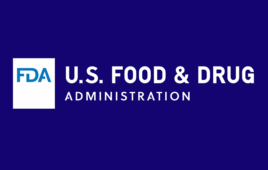
[Coronavirus image courtesy of World Health Organization]
President Trump and the heads of the FDA and the Department of Health and Human Services all said on Sunday that plasma donated by former coronavirus patients has reduced deaths by 35%. Their calculation appears to be based on a small subgroup of hospitalized COVID-19 participants in a Mayo Clinic study — patients who were younger than 80 years old, not on ventilators and who received plasma that contained high levels of antibodies within 3 days of diagnosis, according to a report by the New York Times.
The FDA granted convalescent plasma from former COVID-patients an emergency use authorization on Sunday, saying it may be effective in treating the virus and that its known and potential benefits outweigh the known and potential risks, based on available scientific evidence.
A World Health Organization (WHO) official on Monday cautioned that the use of convalescent plasma to treat coronavirus patients is still experimental, according to the Associated Press.
“The results are not conclusive,” WHO’s chief scientist Dr. Soumya Swaminathan said during a press briefing, according to the news agency. “At the moment, it’s still very low-quality evidence.”
Other scientists, including one who worked on the Mayo Clinic study, wondered about the origin of the statistic, the Times reported, as it was not mentioned in the EUA, an FDA memo or a Mayo Clinic analysis. The FDA’s request for the EUA does not contain the 35% figure, but rather a statement about the adjusted 30-day mortality level observed in patients who the high-antibody-level transfusion within 3 days of diagnosis.
“These data provide evidence to support the conclusion that that transfusion of convalescent plasma to treat hospitalized patients with COVID-19 meets the ‘may be effective’ criterion for issuance of an EUA,” the FDA concluded. “The data are consistent with earlier findings suggesting that administration of convalescent plasma to hospitalized patients, particularly with units containing higher titers of SARS-CoV-2 antibodies, and early on during the disease course, may be effective in reducing mortality in hospitalized patients with COVID-19.”
The request adds that the FDA will continue to evaluate this authorized use based on additional data that become available.
“Given that the clinical evidence supporting this EUA was not obtained from prospective, well-controlled randomized clinical trials (RCTs), additional RCTs (randomized controlled trials) are needed,” the agency noted. “Convalescent plasma should not be considered a new standard of care for the treatment of patients with COVID-19. Ongoing clinical trials of convalescent plasma should not be amended based on the issuance of the EUA. Providers are encouraged to enroll patients in those ongoing clinical trials.”



